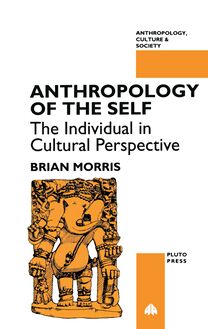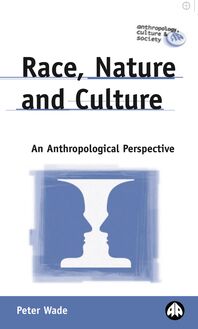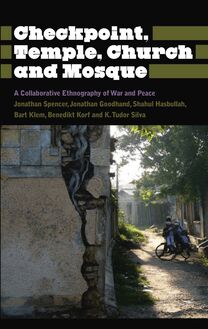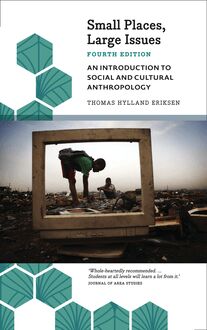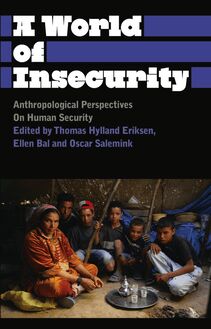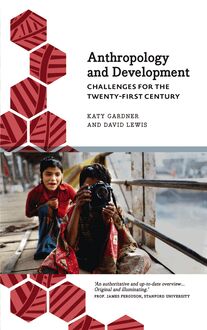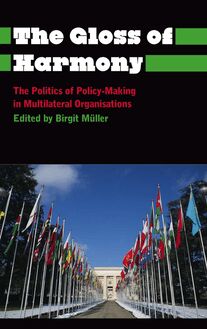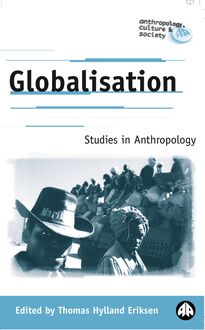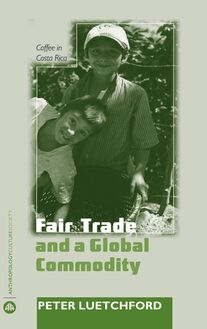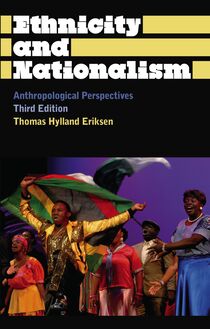-
 Univers
Univers
-
 Ebooks
Ebooks
-
 Livres audio
Livres audio
-
 Presse
Presse
-
 Podcasts
Podcasts
-
 BD
BD
-
 Documents
Documents
-
- Cours
- Révisions
- Ressources pédagogiques
- Sciences de l’éducation
- Manuels scolaires
- Langues
- Travaux de classe
- Annales de BEP
- Etudes supérieures
- Maternelle et primaire
- Fiches de lecture
- Orientation scolaire
- Méthodologie
- Corrigés de devoir
- Annales d’examens et concours
- Annales du bac
- Annales du brevet
- Rapports de stage
La lecture à portée de main
264 pages
English
Découvre YouScribe en t'inscrivant gratuitement
Je m'inscrisWitchcraft, Power and Politics , livre ebook
Découvre YouScribe en t'inscrivant gratuitement
Je m'inscris
Obtenez un accès à la bibliothèque pour le consulter en ligne
En savoir plus
En savoir plus
264 pages
English
Obtenez un accès à la bibliothèque pour le consulter en ligne
En savoir plus
En savoir plus

Description
This is an extraordinary account of witchcraft and witch-hunting in the modern world. A powerful ethnographic study of witch-hunting in 1980s South Africa - a period of rapid social change - this book demonstrates the extent to which witchcraft must be seen, not as a residue of 'traditional' culture but as part of a complex social drama which is deeply embedded in contemporary political and economic processes.
Isak Niehaus provides the context for this fascinating study of witchcraft practices. He shows how witchcraft was politicised against the backdrop of the apartheid state, the liberation struggle and the establishment of the first post-apartheid regime, which all affected conceptions of witchcraft. Niehaus demonstrates how the ANC and other political groups used witchcraft beliefs to further their own agenda. He explores the increasingly conservative role of the chiefs and the Christian church. In the process, he reveals the fraught nature of intergenerational and gender relations.
The result is a truly insightful and theoretically engaged account of a much-studied but frequently misunderstood practice.
Acknowledgements
Notes on terminology
1. Introduction: Exploring Witchcraft, Power and Politics
2. Society, Cosmology and the Making of Witchcraft: Continuity and Change in the History of Green
Valley, 1864-1995
3. Witches of the Lowveld and Their Familiars: Conceptions of Duality, Power and Desire
4. Witchcraft and Whites: Further Notes on the Symbolic Constitution of Occult Power
5. Witches, Cognates, Affines and Neighbours: The Distribution of Witchcraft Accusations, 1960-1995
6. ‘A Witch Has No Horn’: Social Tensions in the Subjective Reality of Witchcraft
7. Witch-Hunting and Political Legitimacy: Chiefs, Comrades and the Elimination of Evil, 1930-1990
8. The ANC's Dilemma: The Symbolic Politics of Four Witch-Hunts in the 1990s
9. Conclusions: Witchcraft and the Postcolonial State
Appendices
Notes
References
Index
Isak Niehaus provides the context for this fascinating study of witchcraft practices. He shows how witchcraft was politicised against the backdrop of the apartheid state, the liberation struggle and the establishment of the first post-apartheid regime, which all affected conceptions of witchcraft. Niehaus demonstrates how the ANC and other political groups used witchcraft beliefs to further their own agenda. He explores the increasingly conservative role of the chiefs and the Christian church. In the process, he reveals the fraught nature of intergenerational and gender relations.
The result is a truly insightful and theoretically engaged account of a much-studied but frequently misunderstood practice.
Acknowledgements
Notes on terminology
1. Introduction: Exploring Witchcraft, Power and Politics
2. Society, Cosmology and the Making of Witchcraft: Continuity and Change in the History of Green
Valley, 1864-1995
3. Witches of the Lowveld and Their Familiars: Conceptions of Duality, Power and Desire
4. Witchcraft and Whites: Further Notes on the Symbolic Constitution of Occult Power
5. Witches, Cognates, Affines and Neighbours: The Distribution of Witchcraft Accusations, 1960-1995
6. ‘A Witch Has No Horn’: Social Tensions in the Subjective Reality of Witchcraft
7. Witch-Hunting and Political Legitimacy: Chiefs, Comrades and the Elimination of Evil, 1930-1990
8. The ANC's Dilemma: The Symbolic Politics of Four Witch-Hunts in the 1990s
9. Conclusions: Witchcraft and the Postcolonial State
Appendices
Notes
References
Index
Sujets
Informations
| Publié par | Pluto Press |
| Date de parution | 20 mai 2001 |
| Nombre de lectures | 0 |
| EAN13 | 9781849640749 |
| Langue | English |
| Poids de l'ouvrage | 2 Mo |
Informations légales : prix de location à la page 0,6250€. Cette information est donnée uniquement à titre indicatif conformément à la législation en vigueur.
Extrait
WITCHCRAFT, POWER AND POLITICS
Exploring the Occult in the South African Lowveld
ISAKNIEHAUS WITHELIAZAARMOHLALA ANDKALLYSHOKANE
David Philip CAPE TOWN
P Pluto Press LONDON • STERLING, VIRGINIA
First published 2001 by PLUTO PRESS 345 Archway Road, London N6 5AA and 22883 Quicksilver Drive, Sterling, VA 20166–2012, USA
www.plutobooks.com Published in Southern Africa 2001 by David Philip Publishers 208 Werdmuller Centre, Newry Street, Claremont 7708, South Africa Copyright © Isak Niehaus 2001 The right of Isak Niehaus to be identified as the author of this work has been asserted by him in accordance with the Copyright, Designs and Patents Act 1988. British Library Cataloguing in Publication Data A catalogue record for this book is available from the British Library
Library of Congress Cataloging in Publication Data Niehaus, Isak A. (Isak Arnold) Witchcraft, power, and politics : exploring the occult in the South African lowveld / Isak Niehaus, with Eliazaar Mohlala and Kally Shokane. p. cm. — (Anthropology, culture, and society) Includes bibliographical references. ISBN 0–7453–1563–1 (hardcover) — ISBN 0–7453–1558–5 (pbk.) 1. Witchcraft—South Africa. I. Mohlala, Eliazaar. II. Shokane, Kally. III. Title. IV. Series. BF1584.S6 N54 2001 133.4'3'0968—dc21 00–012646
10 10
ISBN 0 7453 1563 1 hardback (Pluto) ISBN 0 7453 1558 5 paperback (Pluto) ISBN 0 86486 379 9 (David Philip)
09 9
08 8
07 7
06 6
05 5
04 4
03 3
02 2
01 1
Designed and produced for the publishers by Chase Publishing Services, Fortescue, Sidmouth EX10 9QG Typeset from disk by Stanford DTP Services, Northampton Printed in the European Union by TJ International, Padstow, England
CONTENTS
Acknowledgements Notes on Terminology Acronyms Maps
1. Introduction: Exploring Witchcraft, Power and Politics 2. Society, Cosmology and the Making of Witchcraft: Continuity and Change in the History of Green Valley, 1864–1995 3. Witches of the Lowveld and their Familiars: Conceptions of Duality, Power and Desire 4. Witchcraft and Whites: Further Notes on the Symbolic Constitution of Occult Power 5. Witches, Cognates, Affines and Neighbours: The Changing Distribution of Witchcraft Accusations 6. ‘A Witch Has No Horn’: Social Tensions in the Subjective Reality of Witchcraft 7. Witch-Hunting and Political Legitimacy: Chiefs, Comrades and the Elimination of Evil, 1930–1989 8. The ANC’s Dilemma: The Symbolic Politics of Four Witch-Hunts in the 1990s 9. Conclusion: Witchcraft and the Postcolonial State
Appendix A: Fieldwork Revisited Appendix B: Public Perception Map of South Africa Appendix C: The Witchcraft Suppression Act No. 3 of 1957 Appendix D: Details of the Alleged Witches Violently Attacked, Green Valley, 1971–1985 Appendix E: Details Pertaining to the Victims of Witch-Hunts Organised by the Comrades, Green Valley, 1986–1989 Appendix F: Details of those Accused of Witchcraft, Green Valley, The Christmas Witch-Hunts, 1990 Appendix G: Details of those Accused of Witchcraft, New Lines, Arthur’s Seat, October 1993 Appendix H: Details of those Accused of Witchcraft, Rooiboklaagte, November 1994
v
viii xi xiv xv
1
16
45
63
83
113
130
156 183
194 199 200
202
203
204
206
207
viWitchcraft, Power and Politics Appendix I: The Witchcraft Control Act as Proposed by the Commission of Inquiry into Witchcraft Violence and Ritual Murders in the Northern Province of the Republic of South Africa 208 Notes210 References228 Index241
LIST OF MAPS
1. 2. 3. 4. 5. 6.
South Africa Northeastern South Africa, Including former Bantustan Territories Northeastern South Africa The Wider Bushbuckridge Region, Indicating Villages The Wider Bushbuckridge Region Green Valley, Including Village Sections
LIST OF TABLES
2.1
2.2
5.1
5.2
5.3
5.4
5.5
5.6
Green Valley’s Churches According to Years Founded and Adult Membership, August 1992 Diagnosis of the Underlying Causes of Clients’ Problems by Sebongile Ndlovu and Ketebotse Mogale, Green Valley, February 1992 The Relationship between those Accused of Witchcraft and their Accuser(s), Green Valley, 1960–1995 The Relationship between those Accused of Witchcraft and their Assumed Victims, Green Valley, 1960–1995 The Relationship between the Assumed Victims of Witchcraft and their Accuser(s), Green Valley, 1960–1995 The Relationship between Plaintiffs and Defendants in Cases Brought Before thekgoroof the Setlhare Chief and Headmen, Green Valley, 1991–1995 The Marital Status of Adults in Sampled Households by Gender, Green Valley, 1991–1992 The Employment Status of Adults in Sampled Households by Gender and Marital Status, Green Valley, 1991–1992
LIST OF CASE STUDIES
1.1 1.2
The Headman’s Wife The Headman’s Son
xv xvi xvii xviii xix xx
32
41
89
90
91
92
101
101
3 4
Contents 3.1 The Sexually Promiscuous Neighbour 3.2 The Troublesome Father-in-Law 3.3 The Café Owner and theMamlambo 3.4 The Happy Widow 5.1 Affines, Inheritance and Witchcraft 6.1 Lebo Mnisi: Illness, Marital Strife and Dreams 6.2 Sarafina Maatsie: Deviance and the Tenacity of the Witch Label 6.3 Sam Makola: Genealogy and Mysterious Deaths 6.4 Albert Nziane: Dreams and Self-Confession 6.5 Harry Chiloane: Rumours of Resurrection 7.1 The Killing of a Poisoner 7.2 Assaulting a Witch
LIST OF FIGURES
5.1 7.1 8.1
The Domestic Situation of Asa Mogogodi The Genealogy of Chief Setlhare’s Predecessors The Domestic Situation of Prudence Maluleke
vii 54 55 59 60 99 117 118 121 123 125 143 144
99 134 172
ACKNOWLEDGEMENTS
As the research and writing of this book has extended over a decade, the number of people and institutions who have given valuable assistance towards its successful completion are literally legion. Here, I can mention but a few of those to whom I am indebted. Selecting lowvelders to whom to offer explicit thanks is a difficult task. Kindness, patience, hospitality and helpfulness were general to the hundreds of people with whom I had dealings. I wish to thank the former director of the University of the Witwatersrand Rural Facility (WRF), John Gear, and his staff for facilitating my research. Eliazaar Mohlala and Kally Shokane are superb hosts, expert research assistants and my most valued friends. I am also very grateful to others who aided my work as informants and in countless other ways. They include the late B. Chiloane, Enios Chiloane, chief Nkotobona Chiloane, Philipina Chiloane, ‘doctor’ Gumede, Trafi Maatsie, Elmon Machate, Freddy and Joyce Makhubela, Justice Malatsi, Phileon Malapane, John Malathole, Harry Maluleke, Valley Mapaile, the late ‘doctor’ Marule, Seshieng Mashego, Doris Mathebula,ngwaModike, Elphas Mogale, Alec Mohlala, MacDonald Mokgope, Caswell Mokoena, Timothy Monareng, Milton Morema, Lakios Mosoma, Sabina Ndlovu, Jabulane Nokeri, Sidney Nyathi, Nelson Sekgobela, Willias Sekgobela, Exom and Girly Shokane, Meita Shokane, Daniel Thobela, Eric Thobela, Feita Thobela and Nana Tlou. I hope that in some way this book may contribute to preserving the history of this part of the lowveld for their descendants and towards realising their aspirations to build a prosperous country in which mis-understanding, intolerance, violence and fear knows no place. I also wish to acknowledge the contributions of Peta Katz, Edwin Ritchken, Graeme Rodgers and Jonathan Stadler. As fellow researchers in the lowveld they kindly shared their information with me and shaped the development of my research. Many individuals assisted me during the trying task of writing up the book. I especially wish to thank Adam Kuper who supervised the original PhD thesis on which this book is based. Adam provided intense intellectual stimulation, expert comments on the drafts of chapters and, along with Jessica Kuper, selflessly accommodated me during my stay in London. I am also extremely
viii
Acknowledgementsix grateful to Peter Geschiere, Suzette Heald, Patrick McAllister and Richard Wilson who read and commented upon the entire manuscript. I presented drafts of successive chapters as seminar papers to the Department of Social Anthropology and the Institute for Advanced Social Research at the University of the Witwatersrand (Wits); Department of Social Anthropology, University of Cape Town; Department of Anthropology, Yale University; Department of Human Sciences, Brunel University; Department of Anthro-pology, Venda University; Council for the Development of Social Research, Dakar; and to the American African Studies Association and the Association for Anthropology in Southern Africa. I thank all participants for their insightful comments, criticism and encouragement. It is again difficult to select individ-uals for whom to offer explicit thanks. I none the less feel obliged to mention Russel Alley, Leslie Bank, Gina Buijs, Dianne Ciekawy, David Coplan, Jim Campbell, Gotfried Dederen, Peter Delius, Don Donham, Stuart Douglas, Ronald Frankenburg, David Gellner, Carolyn Hamilton, David Hammond-Tooke, Deborah James, Prudence Mnisi, John Middleton, Ras Niehaus, Murray Last, Tom Lodge, Justine Lucas, JoAnne Pannell, Patrick Pearson, Graeme Reid, Hal Scheffler, John Sharp, Karen Shapiro, Owen Sichone, Jan Simpson, Andrew Spiegel and Charles van Onselen. I am grateful to Carla Lodge for skilfully preparing the maps. Most of all I wish to thank my parents, Anita and Hennie Niehaus, to whom I dedicate this book, for their unfailing love and support throughout the years. I also thank Elaine and Victor Katz, and Lorraine and Paul Thiel, for feeding me in Johannesburg. Financial support was provided by the Human Sciences Research Council (Centre for Science Development) and by Wits University. Funding from the latter institution included a University Council grant; financial support for sabbatical leave by the office of the Deputy Vice Chancellor, Academic Affairs; and allocations from the Department of Social Anthropology’s research incentive scheme. The views expressed in this book do not reflect those of the funding bodies. Because my project has spanned some years, some of my observations have already found their way into print. Earlier versions of chapters two, three and six were published as ‘Christianisme, apartheid et genese de la sorcellerie dans le Lowveld Sud Africain’, in Veronique Faure (ed.)Dynamiques religieuse en Afrique australe, Paris: Karthasla/CEAN, pp. 207–38, 2000; ‘Witches of the Transvaal Lowveld and their Familiars. Conceptions of Duality, Power and Desire’,Cahiers d’ Études Africaines, XXXV (2–3), 138–9, pp. 513–40, 1995; and ‘“A Witch Has No Horn”: The Subjective Reality of Witchcraft in the South African Lowveld’, in Patrick McAllister (ed.)Culture and the Com-monplace: Anthropological Essays in Honour of David Hammond-Tooke, Johannesburg: Witwatersrand University Press, pp. 251–78, 1997. My articles ‘Witch-Hunting and Political Legitimacy: Continuity and Change in Green Valley, Lebowa’, 1930–91,Africa, (63), 4, pp. 137–60, 1993; and ‘The ANCs
xWitchcraft, Power and Politics Dilemma: The Symbolic Politics of Three Witch-Hunts in the South African Lowveld’,African Studies Review, (41), 2, pp. 93–118, 1998, summarise some findings from Chapters 7 and 8.
Isak Niehaus Hatfield, Pretoria
NOTES ON TERMINOLOGY
Colloquial, official, vernacular and analytical terms play a major role in this book and must therefore be carefully defined. Owing to the nature of my arguments, the truest definitions of terms are left to the main text. For easier reference, however, I provide a basic definition of some colloquial and official terms, a glossary of vernacular terms used more than once in the text and a list of abbreviations.
COLLOQUIAL AND OFFICIAL TERMS
African, black and whiteFormer South African legislation classified the country’s population into four main categories as Black, Coloured, Asian and White (cf. West 1988). The former three have been officially described as non-white, but many people thus classified prefer the generic reference black, which is how I have used the term. I use the term African to describe the category designated Black (previously Native or Bantu) in legislation. I do not use them to imply support for any system which classifies people in racial terms for purposes of political discrimination. baas(Afrikaans: ‘boss’). A term used to denote employers and sometimes white male persons in general. BantustanNo term used to describe the Bantustans/homelands/national states is politically neutral. I have used the term Bantustan because it most clearly reflects rejection of the policy of creating separate political-geographic entities for different categories of the South African population. ComradesNationally used to denote supporters of the liberation movements. In the lowveld the term was used to include almost any youth who was seen to support the liberation struggle. currencyPrices are expressed in pounds sterling (£) until 1961, when the Union of South Africa became a Republic, and in South African rands (R) thereafter. The rate of exchange was £1 = R2 until devaluation of the pound in 1967, and fluctuated through the 1970s, 1980s and 1990s. The value of the Rand has declined sharply against many other currencies in recent years. On 26 April 2000 the exchange rate was £1 = R10.65 and US$1 = R6.70. ipimpi(Zulu). Used by supporters of the liberation movements to refer to ‘sell-outs’, reactionaries and police informers.
xi
xiiWitchcraft, Power and Politics marula(pl.marulas). The deciduous treeScerocarya birreacommon in the hotter parts of South Africa. Its fruit, also known as marulas or marula berries, is used for making jam and jelly and for making beer. ndumba(Tsonga). Small round, thatched-roofed homes built specifically for the ancestors and alien spirits to dwell in. Nearly all diviners and herbalists treat their clients inndumba. psyanga(Tsonga: ‘rebel’). The name of a youth gang from Acornhoek. rondavelA round, thatched-roofed home. shebeen(Gaelic: ‘small house’) An illegal private house of entertainment selling beer and liquor. sjambok(Afrikaans: ‘whip’, verbsjambokked). Usually manufactured from rhinoceros or hippopotamus hide or from strong plastic. xirwalo(Tsonga ‘bring beer’). A ritual visit by a man’s affines. Also denotes the beer and presents brought by the affines.
GLOSSARY OF NORTHERN SOTHO TERMS
Unless specified otherwise, all vernacular terms in the text are in the Sepulana dialect of Northern Sotho, as spoken in the lowveld.
bonyatsilong-term, extramarital love affair. bjanggrasses used for thatching. difekaan affliction caused by the transgression of seniority rules. As a conse-quence women are unable to bear children. dumainnate, natural, desire. fisˇaheat and pollution. go loma‘to bite’, rite of the first fruits. go hlaola‘to select’, a fine paid by the progenitor of a child to free himself of any paternal obligations. hlabologilengcivilisation. ila(pl.diila) taboo. kgoro(pl.dikgoro) a ward or moot/court of a chief or headman. kgosˇi(pl.magosiˇ) chief. lehufaenvy and jealousy. lekgowa(pl.makgowa) white person. leˇsakoreeds for manufacturing mats and thatched grass. letsˇwasehlareplaced on a corpse which causes the witch or killer to die in a similar manner as his or her victim. maatlapower, strength. madi a magolo‘big blood’, an ailment. mafularaan affliction caused by the transgression of funeral rules. Its symptoms include chest pains and profuse coughing. maitshwarovirtuous conduct and character.
-
 Univers
Univers
-
 Ebooks
Ebooks
-
 Livres audio
Livres audio
-
 Presse
Presse
-
 Podcasts
Podcasts
-
 BD
BD
-
 Documents
Documents
-
Jeunesse
-
Littérature
-
Ressources professionnelles
-
Santé et bien-être
-
Savoirs
-
Education
-
Loisirs et hobbies
-
Art, musique et cinéma
-
Actualité et débat de société
-
Jeunesse
-
Littérature
-
Ressources professionnelles
-
Santé et bien-être
-
Savoirs
-
Education
-
Loisirs et hobbies
-
Art, musique et cinéma
-
Actualité et débat de société
-
Actualités
-
Lifestyle
-
Presse jeunesse
-
Presse professionnelle
-
Pratique
-
Presse sportive
-
Presse internationale
-
Culture & Médias
-
Action et Aventures
-
Science-fiction et Fantasy
-
Société
-
Jeunesse
-
Littérature
-
Ressources professionnelles
-
Santé et bien-être
-
Savoirs
-
Education
-
Loisirs et hobbies
-
Art, musique et cinéma
-
Actualité et débat de société
- Cours
- Révisions
- Ressources pédagogiques
- Sciences de l’éducation
- Manuels scolaires
- Langues
- Travaux de classe
- Annales de BEP
- Etudes supérieures
- Maternelle et primaire
- Fiches de lecture
- Orientation scolaire
- Méthodologie
- Corrigés de devoir
- Annales d’examens et concours
- Annales du bac
- Annales du brevet
- Rapports de stage
Signaler un problème
YouScribe
Le catalogue
Le service
© 2010-2024 YouScribe
